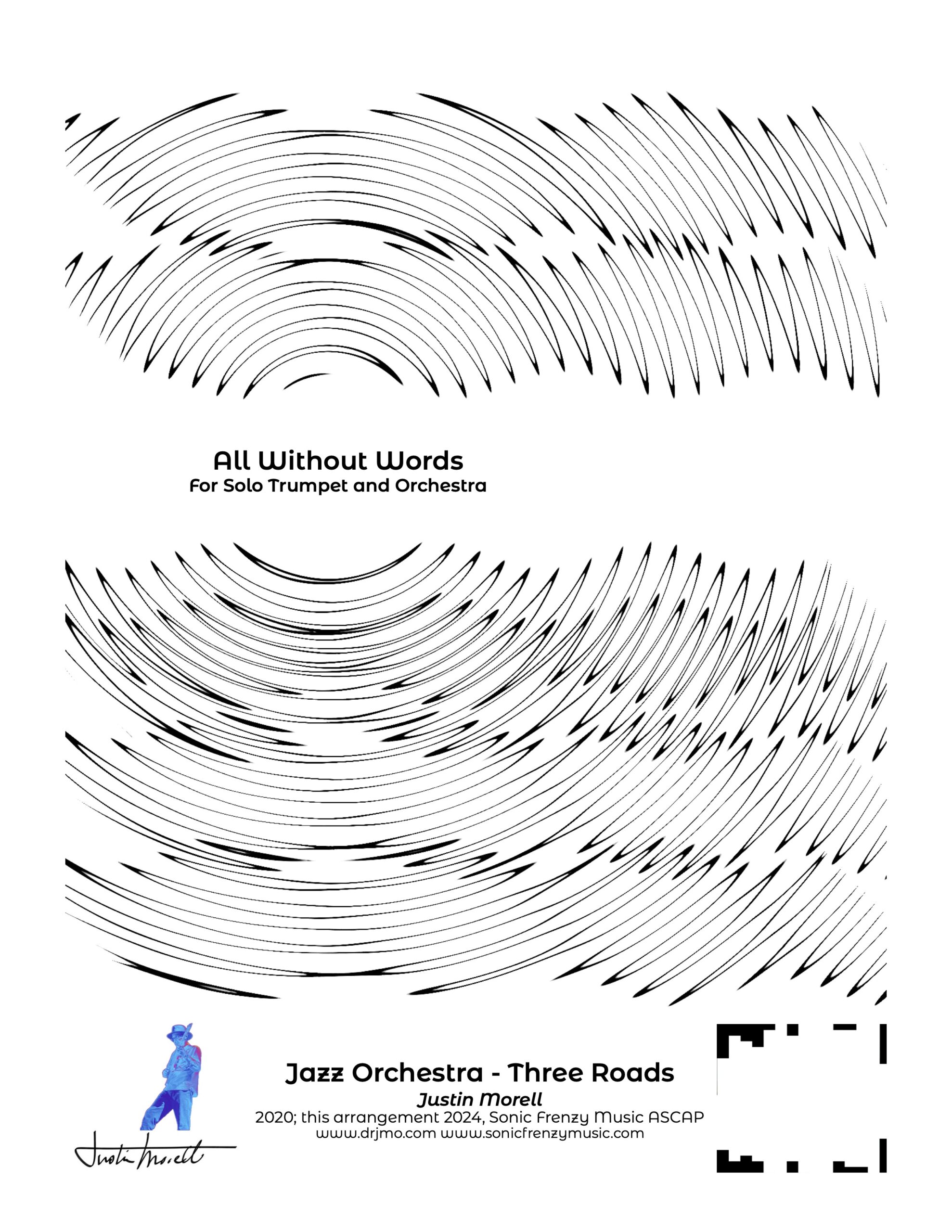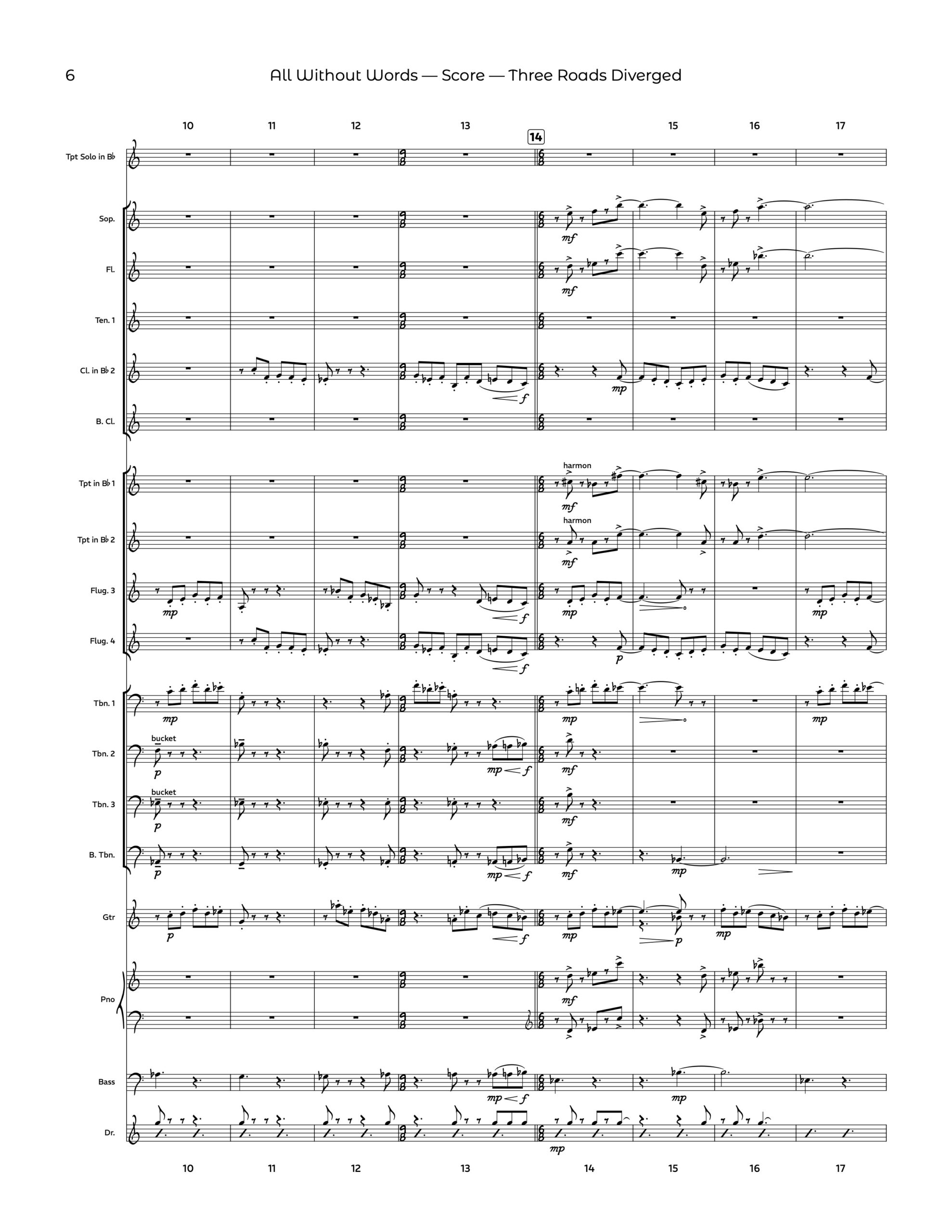This recording is from the orchestral release. The jazz orchestra version follows the same form and style, with adjustments for instrumentation and orchestration.
Justin says: This is a play on the famous line about two roads diverging in the woods. There’s a third road that you don’t ever see until you become the parent of a child who thinks and sees the world in an entirely different way. (It’s like a well-known story often told in the autism community about how parenting a child with autism is like planning a trip to Rome and realizing you’ve arrived in Holland.)
Approx. 5 min; this is the ninth variation of All Without Words. From the orchestral version:
Variation 9 is built on a major-mode version of the melody, very loosely. The texture is primarily two voice counterpoint at first—the constantly running lower voice against the melody played in the highest woodwinds and trumpet—but the lower melody is handed back and forth between different sections of the orchestra. It is therefore essential to achieve comfortable and rhythmically-accurate transitions between players such that it has the smoothness of a single voice. While most of the movement is in compound-duple meter, those measures are often felt in groups of three. This, in combination with an occasional meter change, make for a rhythmic challenge: the music must remain light and bouncy throughout, without hesitation. The trumpet improvisation features a repeated section that can be extended.
This jazz orchestra version should maintain as much of the orchestral mood as possible. Many of the textures have been modified and adapted for winds and brass, but the effect should be the same.
Instrumentation: [5, 4, 4, 4, plus soloist] This movement requires: soprano saxophone, alto doubling flute, tenor 1, tenor 2 doubling B-flat clarinet, and baritone doubling bass clarinet, with trumpets 3 & 4 doubling flugelhorn.

